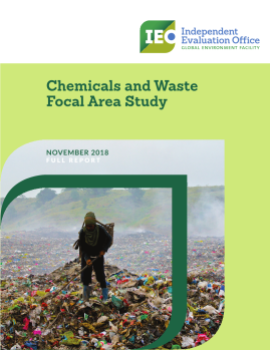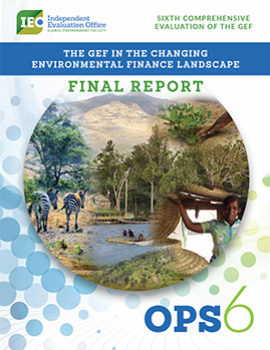This study is the first comprehensive study of the Chemicals and Waste (CW) focal area undertaken by the Global Environment Facility's (GEF) Independent Evaluation Office (IEO), encompassing the GEF's grant funding for activities focused on persistent organic pollutants (POPs), ozone depleting substances (ODS), mercury, and sound chemical management more generally. The GEF serves as the Financial Mechanism for the Stockholm Convention on Persistent Organic Pollutants and for the Minamata Convention on Mercury. The GEF has also assisted countries that are not eligible to receive funding through the financial mechanism for the Vienna Convention's Montreal Protocol on Substances that Deplete the Ozone Layer to meet their ODS phaseout obligations.
The purpose of this CW focal area study is to provide insights and lessons for the focal area going forward into the next replenishment cycle (GEF-7), based on evidence from an analysis of the CW portfolio's projects and terminal evaluations. The objectives of this study are to:
- Assess the relevance of the strategy to the guidance of the conventions.
- Present a synthesis of CW results and progress towards impacts.
- Assess the approaches and mechanisms through which results have been achieved.
- Assess efficiency and performance of the CW portfolio.
- Identify lessons learned and scaling up opportunities for GEF-7.

